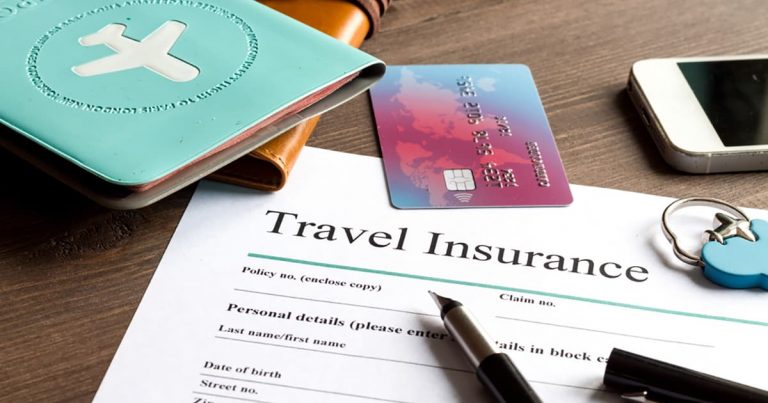
Benefits of travel insurance
Travel insurance is very important in case unexpected events occurs. What happens if: There is a dangerous event? Travel insurance is worth getting because travel insurance is what will provide you with medical coverage when you get sick or injured, reimburse you when your camera breaks, your flight is canceled, a family member dies and you have to come home, if lose a bag, or something is stolen. It’s all-purpose emergency coverage and is the single most important thing you should get for your trip (but hope to never have to use).
Travelers often ask us what type of travel insurance they need for their particular trip. Essentially, there are three types of travel insurance plans: package plans, travel medical plans, and specialty plans that limit the coverage to specific options such as evacuation/repatriation, car rental, or flight accidents for example.
The following travelers need a travel insurance package plan: Traveling families and seniors on a budget who can’t afford to lose all their non-refundable trip costs in the event of an unexpected emergency like an illness, a car crash, or a job loss.
What to consider: How much will it cost to extend the insurance to your baggage? How much to include items that you might buy abroad, such as furniture or paintings? Check your other insurance providers, e.g. car and house as you could get a discount for a travel policy since you are already a customer. Remember our Golden Rule, if you don’t ask the answer is always no. You can always highlight their competitor who charges less for the same coverage.
There are two main types of travel insurance – single-trip, which only covers one getaway, or annual multi-trip, which covers you for every trip you make over the course of a year. A single-trip policy is best for people who will only go on one holiday in a 12-month period, and can cost as little as a few pounds. Annual policies can be a cheaper option if you know you’ll be going away several times in a year.
Many standard travel insurance policies won’t include high-risk activities, such as scuba diving or skiing. So it might be worth taking out a specialist single-trip policy to cover a particular holiday. If you opt for annual multi-trip travel insurance, check how many days come under your ‘maximum trip duration’. Most insurers will cover individual trips of up to around 31 days. If you are planning on being away for longer, speak to insurers directly or opt for specialist cover.
You can buy travel insurance up until the day you leave for a trip. Most policies take 24-48 hours to activate. They don’t start instantaneously! You can buy travel insurance even after you’ve booked your flight, so long as the policy is activitated before you depart on your trip! Even though you can wait until you leave, it’s best to get your travel insurance as soon as possible. Every day you wait, there’s a chance something could happen and you can’t get a travel insurance after something goes wrong. If a hurricane ruins your trip, your travel insurance would only cover you if you bought it before the hurricane formed. Buy a plan the day after you go to the doctor but before he tells you you’re sick? Your plan won’t cover you since your original visit happened BEFORE the plan!
การเลือกประกันการเดินทาง นั้น มีมากมายหลายชนิด แต่หากท่านได้ลองเปรียบเทียบประกันแล้วๆจะรู้ว่าแต่ละแบรนด์หรือบริษัทประกันส่วนใหญ่ให้นั้นจะคล้ายๆกัน แต่จะต่างกันตรงเบี้ยประกัน และ การคุ้มครอง ที่ส่วนใหญ่แล้วขึ้นกับจำนวนเงินที่ลูกค้าจ่ายไป ดังนั้นการเลือกประกันเดินทางที่ดี ก็ควรศึกษาให้ครอบคลุมและไม่ให้พลาด การคุ้มครองบางอย่างที่ไม่คาดฝันไป เช่นข่าวคนไทย ไปเที่ยวอเมริการแล้วโดนทุบรถ แต่ประกันไม่รับผิดชอบในส่วนที่เป็นของหายระหว่างการเดินทาง
Recent Posts
Tags
Categories
Archives
- March 2024
- February 2024
- January 2024
- December 2023
- November 2023
- October 2023
- September 2023
- August 2023
- July 2023
- May 2023
- April 2023
- March 2023
- February 2023
- January 2023
- December 2022
- November 2022
- October 2022
- September 2022
- August 2022
- July 2022
- June 2022
- May 2022
- April 2022
- March 2022
- January 2022
- December 2021
- October 2021
- September 2021
- August 2021
- June 2021
- May 2021
- April 2021
- March 2021
- February 2021
- January 2021
- December 2020
- October 2020
- September 2020
- August 2020
- July 2020
- June 2020
- May 2020
- April 2020
- March 2020
- February 2020
- January 2020
- December 2019
- November 2019
- October 2019
- September 2019
- August 2019
- July 2019
- June 2019
- May 2019
- April 2019
- March 2019
- February 2019
- January 2019
- December 2018
- November 2018
- October 2018
- September 2018
- August 2018
- July 2018
- June 2018
- May 2018
- April 2018
- March 2018